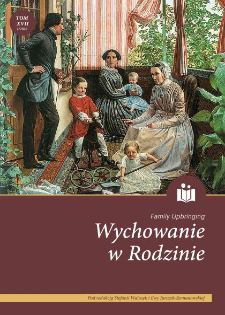Karaimskie tradycje i aspiracje oświatowe
w XIX/XX wieku (zarys problemu)
Karaim’s traditions and educational aspirations in the 19th/20th century (outline of the problem)
Author(s): Urszula WróblewskaSubject(s): History, Social Sciences, Education, Sociology, Social history
Published by: Zakład Historii Edukacji w Instytucie Pedagogiki Uniwersytetu Wrocławskiego
Keywords: Karaite; the 19th/20th Century; traditions; upbringing; education; family; teachers
Summary/Abstract: Aim. The aim of the article is to show the specificity of Karaite upbringing, forms and methods of religious education and educational activities that were determined by the socio-political situation of Polish lands and professional structure of Karaites. Methods. In this article the use of source analysis, for exemple: documents deposited in Lithuanian archives, analysis of the Karaite’s press and interviews with the oldest Karaites. Results. Karaite families cultivated their ancestors’ traditions and the love oflearning was passed onto subsequent generations. Family, as an original and closest educational environment that inculcated religious values into a child and taught them their mother tongue, was the source of shaping Karaim attitudes. Despite the importance of family environment, the upbringing depended mostly on financial situation and social status of a family. In Karaite municipalities in the 19th/20th century there were traditional religious schools called midrash functioning next to kenesas (houses o fprayer). Teachers who taught religious rules and practises, and Karaite language, played an important role in passing religious knowledge. Conclusions. Because of the relevance of educational authorities, upbringing in a Karaite community in the 19th century was based on the model of postfigurative culture,in which cultural patterns were handed down by older generation possessing experience and knowledge to younger generation.
Journal: Wychowanie w Rodzinie
- Issue Year: XVII/2018
- Issue No: 1
- Page Range: 17-32
- Page Count: 16
- Language: English, Polish

